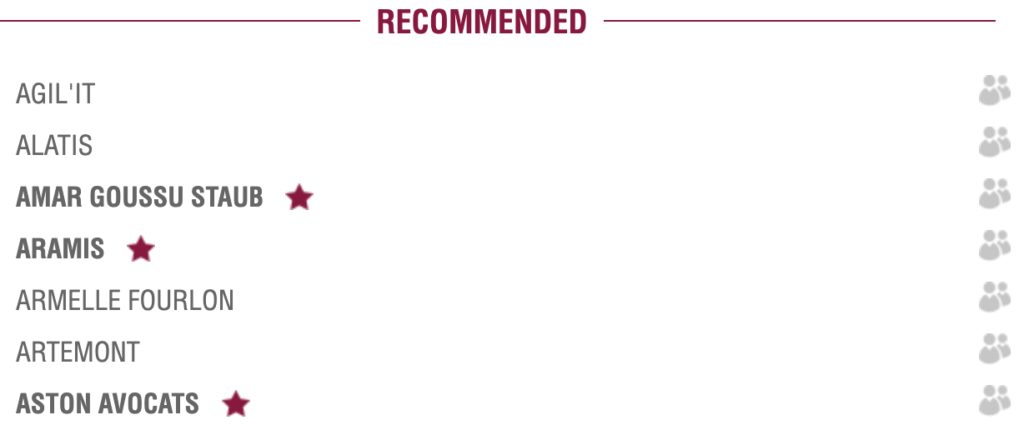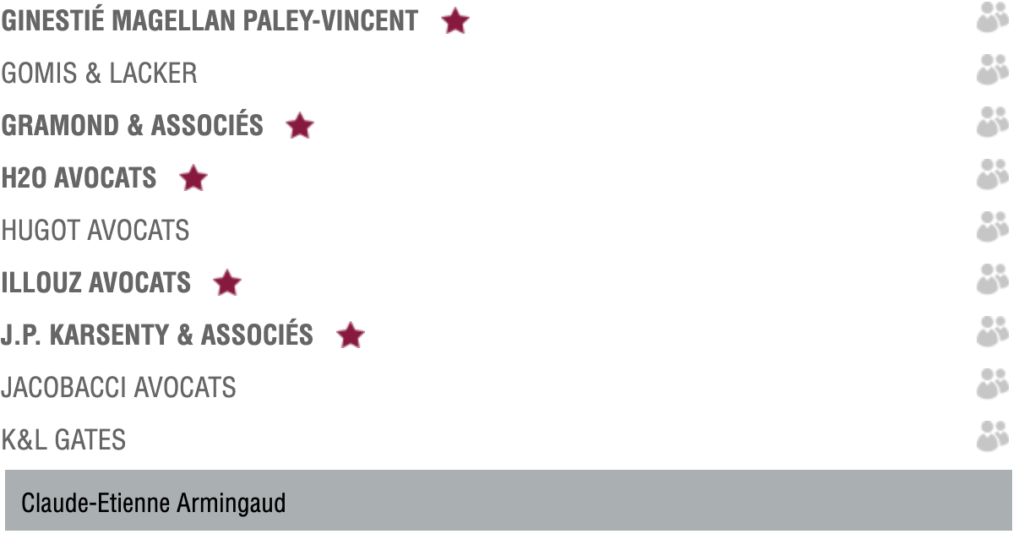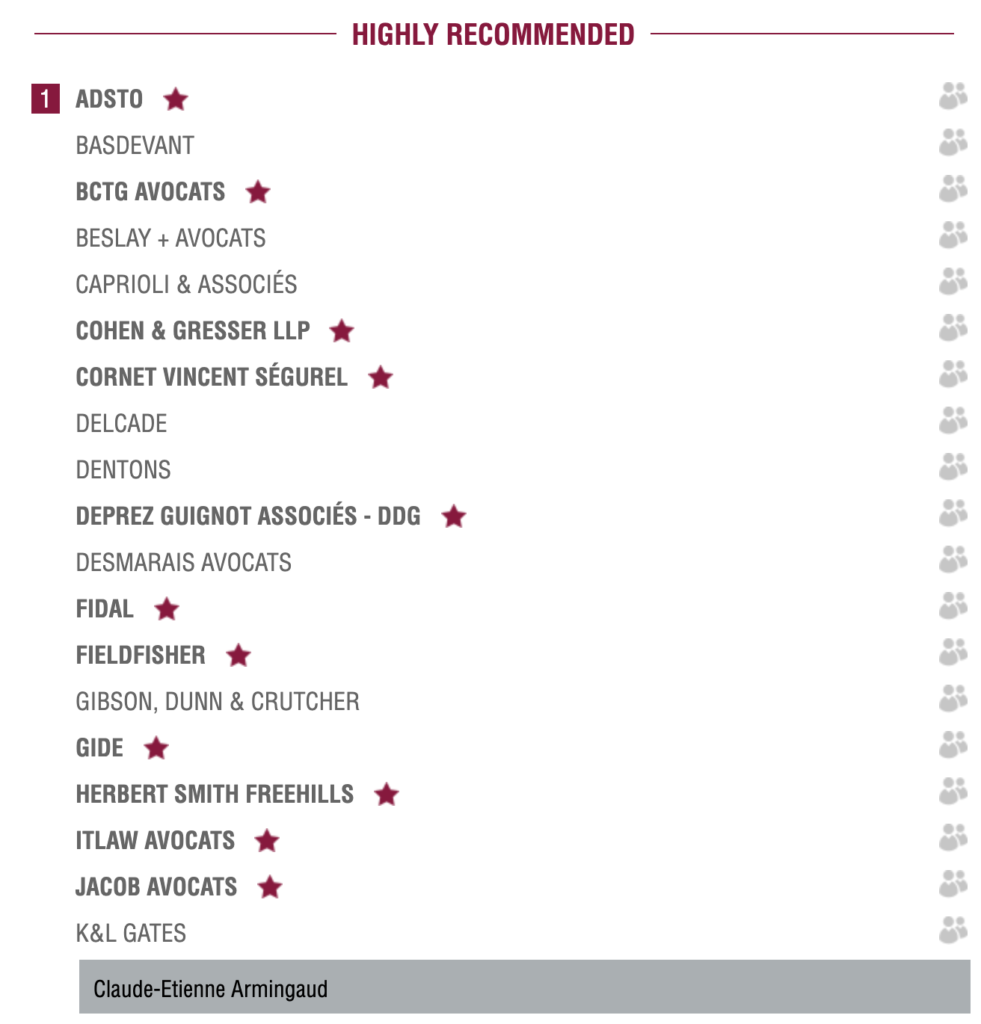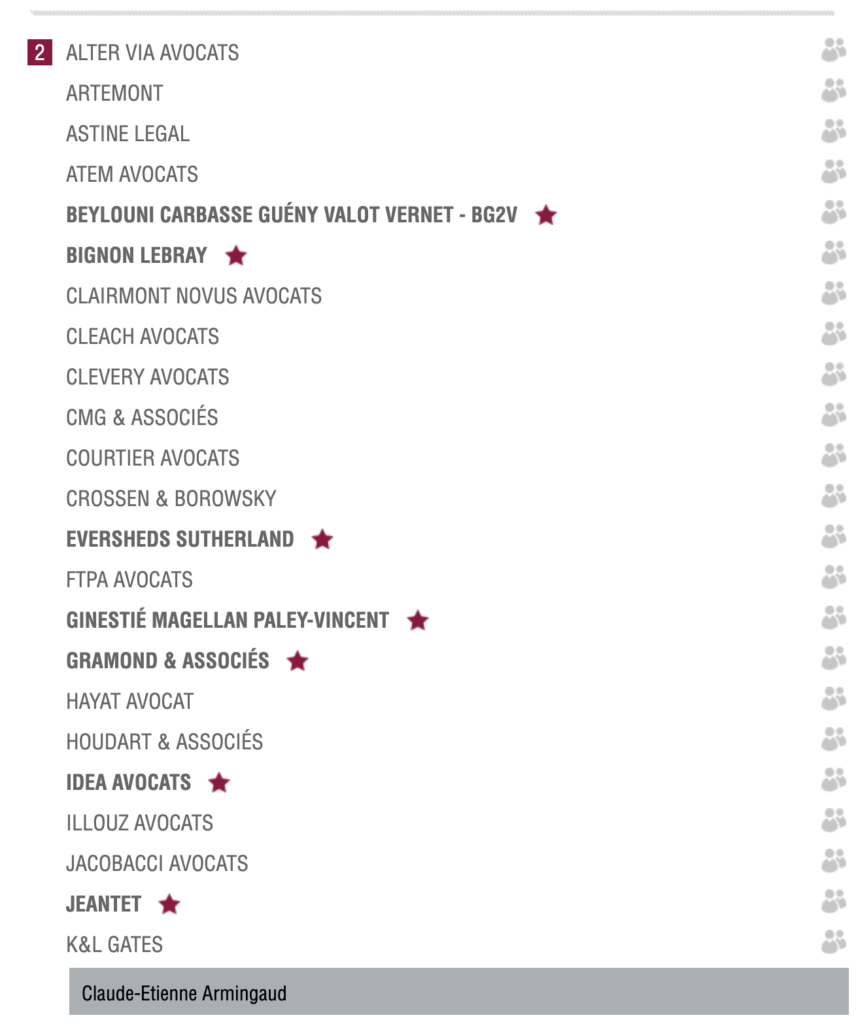Practice head(s): Claude-Etienne Armingaud
Testimonials
‘Skilled technical lawyers with excellent industry knowledge.‘
‘Claude-Étienne Armingaud possesses excellent technical legal skills with a sensible practical commercial approach which comes through unrivalled knowledge of the sector.‘
(more…)‘Claude-Étienne Armingaud is the best at what he does, plain and simply.












